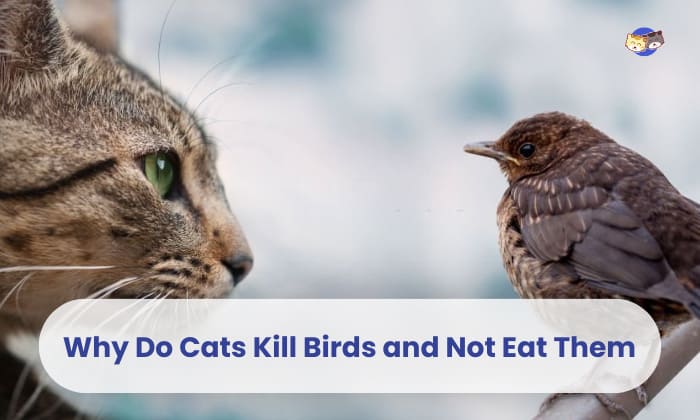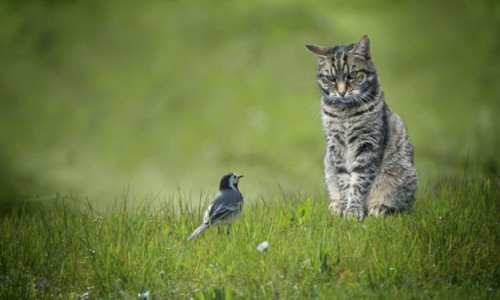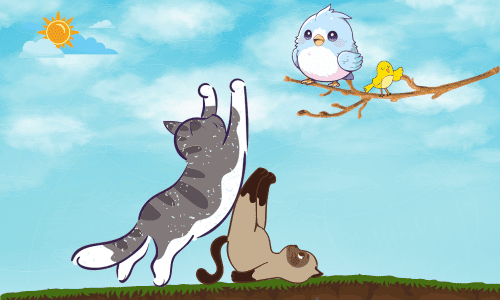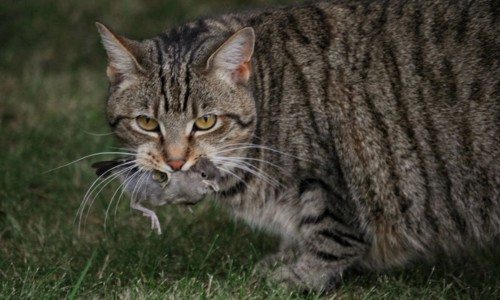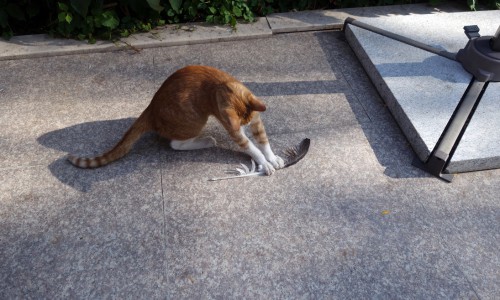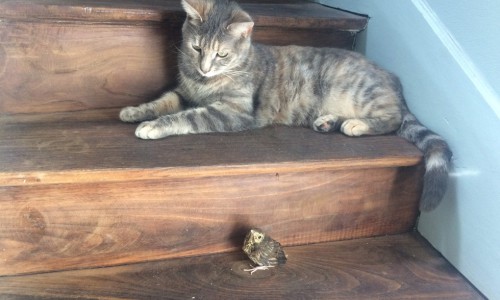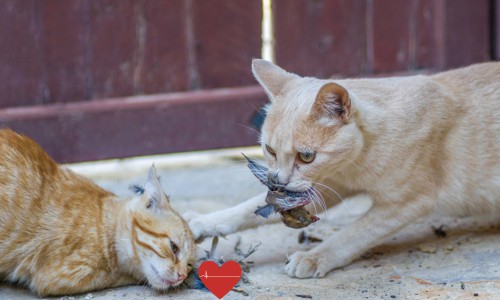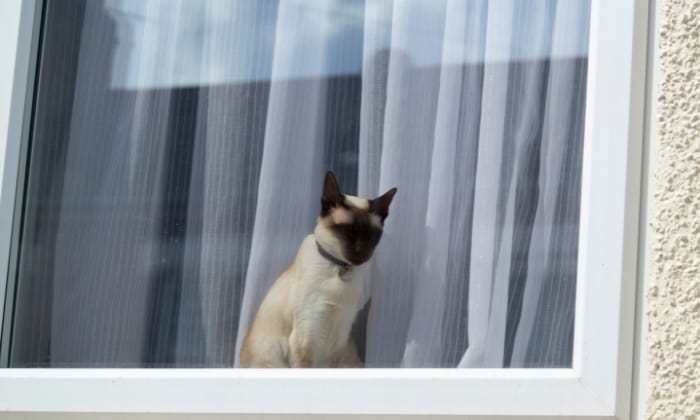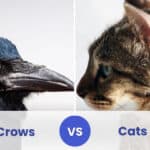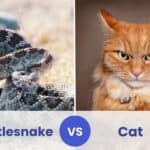If you have encountered the occasion where your little adorable proud feline hunter presents you with a lifeless bird gift out of nowhere for no reason and only for the tiny bird to remain untouched, worry not, dear fur-parent!
In this article, we embark on a journey into the enigmatic world of cats, as we delve into the list of possible reasons ‘why do cats kill birds and not eat them?’
In fact, cats are naturally born hunters, and their actions often stem from their primal drive to hunt, play, and establish their prowess!
Knowing the reasons behind this predatory behavior will also provide insights into stopping them from becoming consistent.
Table of Contents
Reasons Behind Cats Killing Birds
There are several reasons why your cat might be consuming birds. Let’s look into each of these explanations in more detail:
1. Innate Feline Predatory Drive
One of the primary reasons behind cats killing birds is their innate predatory drive. Cats are natural hunters, a trait from their wild ancestors’ need to hunt for food.
Even though most domestic cats receive regular meals from their owners, their predatory instincts remain deeply ingrained.
When they see a bird fluttering by or hear the chirping of nearby baby birds, their primal instincts kick in, and they can’t resist the urge to chase and capture it.
This behavior is not about hunger; it’s about fulfilling their instinctual need to hunt!
2. Playful Kitty-Cat Behavior
Another possible reason why house cats hunt for smaller prey, such as birds, is that they perceive the act of hunting as a form of play.
The chase, pounce, and capture sequence closely mimics the hunting behavior, providing mental and physical stimulation! When a cat successfully captures a bird, it often sees it as a plaything, tossing it around or batting it with their paws.
This play behavior is a manifestation of their predatory behavior and may not involve consuming the prey.
The behavior of your cat killing birds, but didn’t eat it after, may seem puzzling, but truly it is proof of the complex nature of animals!
3. Here’s a Gift for You, Hooman!
Cats hunting birds also often result in trophy presentations. These domestic cats bring their owners the lifeless bird, but they don’t eat it.
These trophies are a display of affection and a way for cats to communicate their hunting prowess.When a cat brings a dead bird to its owner, it is essentially saying, “Look what I caught for you, hooman!”
This seemingly strange cat behavior may leave us puzzled, but it is a gesture of love and a way for cats to bond with their owners!
4. Boredom and Enrichment
In many cases, house cats that are kept indoors may resort to hunting birds as a form of mental and physical stimulation.
Cats are intelligent creatures that need mental and physical challenges to stay happy and healthy.
When they don’t have access to stimulating activities and environments, they may turn to bird hunting as a way to alleviate boredom and fulfill their natural instincts.
Providing toys, puzzles, and interactive play can help divert their energy away from hunting birds.
5. This is My Territory!
Domestic cats are also territorial, and they may view birds as intruders in their territory, particularly if they perceive them as a threat to their food source or safety.
In such cases, cats may engage in predatory behavior as a means of defending their territory rather than out of hunger.
This territorial instinct can lead to the killing of birds even when there is no intention to consume them.
6. Inefficient Hunting Skills
It is not uncommon for the feline family to eat birds since felines are naturally carnivores—birds are prey for cats.
However, cats hunting birds don’t always have efficient hunting skills. Some cats may catch birds but lack the knowledge or experience to efficiently kill or consume them.
As a result, the bird may end up injured or dead, but the cat may not know how to proceed with eating it. In such cases, the cat may lose interest in the prey, leaving it untouched.
How to Stop Your Cat From Consistently Preying on Birds
To prevent your cat from hunting birds, you may keep them indoors while providing enough mental and physical stimulation. You may also use deterrents, attaching a bell to its collar, and ensuring a balanced diet.
However, if the hunting behavior persists or is severe, it is essential to seek professional help right away for further assistance and examination regarding your feline buddy’s behavior.
Remember that modifying your cat’s behavior may take time and patience, and always prioritize your cat’s well-being and the safety of wildlife.
Conclusion
To answer the question, do cats eat birds or just kill them?” When a cat kills a bird but doesn’t eat it, it is usually due to a combination of factors, including their lack of hunger, the desire to present trophies, and the need for mental and physical enrichment.
By recognizing and respecting their innate instincts, we can better understand and appreciate the unique bond we share with our domestic cats while protecting the little birds that share our environment.
And there you have it, fur-parents! We hope we were able to satisfy your feline curiosity about ‘why do cats kill birds and not eat them.’

I am Amy Sawy, a Doctor of Veterinary Medicine (DVM) graduate from the University of Kansas. y husband, Dr. Plummer, and I own a veterinary clinic in Phillipsburg, Kansas. In addition to my professional background, I am a devoted pet owner myself, with a household that includes dogs, rodents, and most notably, cats – a total of five felines in my home.
In 2020, I joined an organization as a professional writer, leveraging my experience and collaborating with my team to deliver the most valuable information for your cat’s care.


